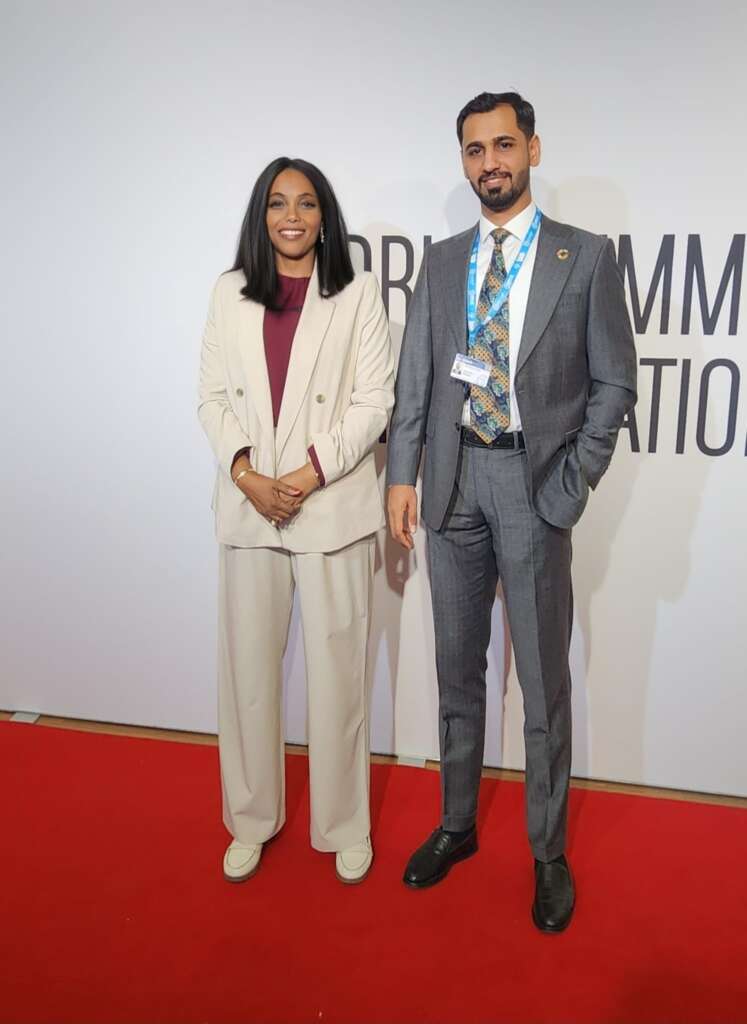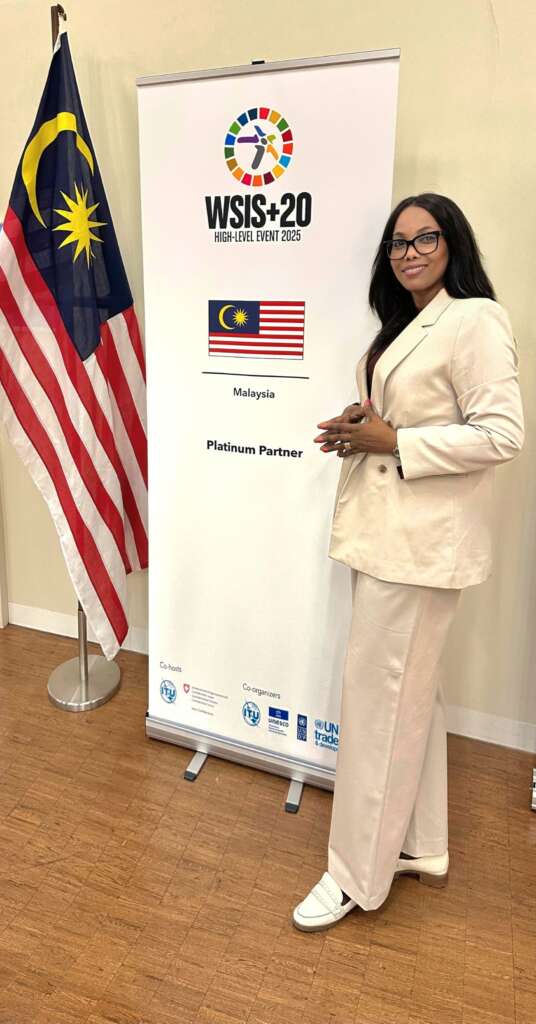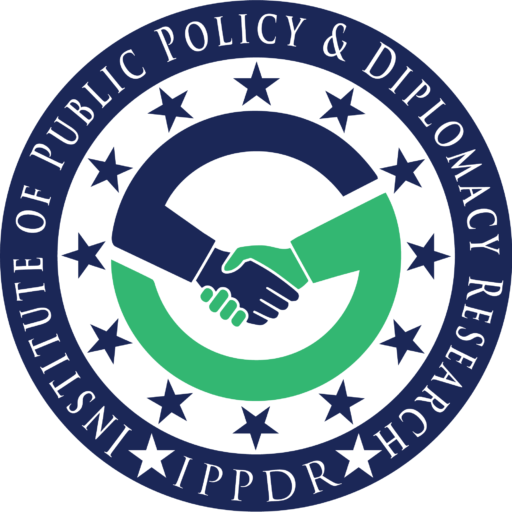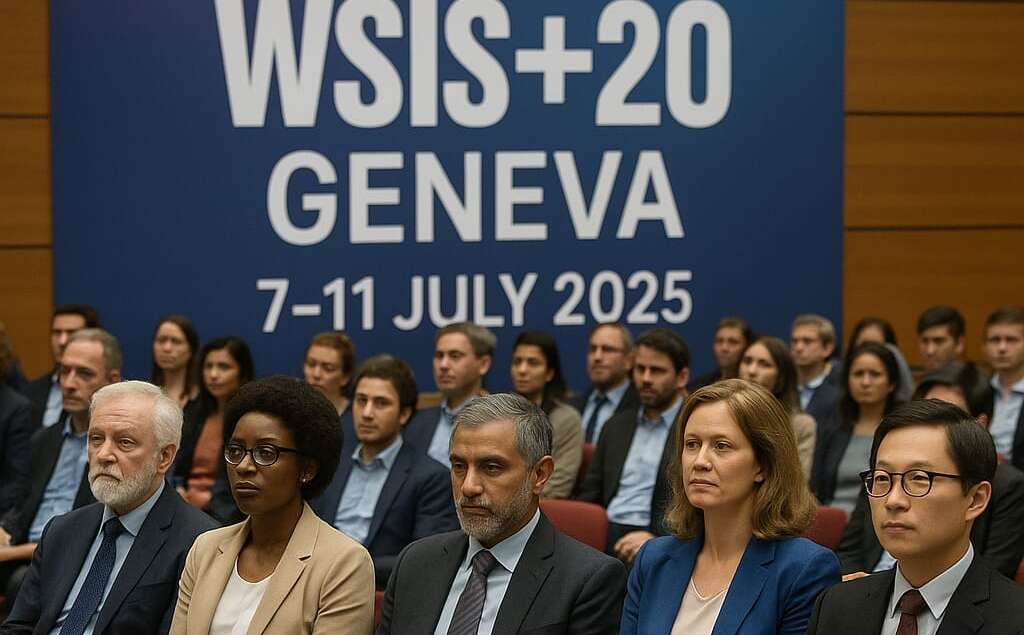Building Trust in the Digital Age: IPPDR at WSIS+20
From July 7 to 11, 2025, global policymakers, civil society leaders, academics, youth, and private sector experts gathered at the Palexpo in Geneva for the WSIS+20 High-Level Event. This forum marked twenty years since the first World Summit on the Information Society and offered a platform to reflect progress, share lessons, and plan for the future of digital development.
The Institute of Public Policy and Diplomacy Research (IPPDR) was honored to participate in this important event. Our focus was clear: promote ethical, people-centered governance of artificial intelligence (AI), support digital rights, and encourage fair access to technology. Our engagement was grounded in research, partnerships, and a strong belief that digital transformation must serve everyone, especially those who have historically been excluded.
Why AI Governance Cannot Wait
AI is no longer a futuristic concept. It is part of how decisions are made in schools, hospitals, border systems, Diplomacy, and government offices. But without oversight, AI can unfortunately reproduce discrimination, ignore context, and damage public trust.

At WSIS+20, IPPDR called for clear, responsible public policy that ensures AI tools are fair, transparent, and aligned with basic rights. Governance cannot be left to private companies alone. Governments, educators, civil society organizations, and youth must all have a seat at the table.
We attended sessions that addressed AI and human rights, ethical use of data, and the growing impact of generative technologies. What stood out across the board was a shared concern: technology is moving faster than regulation. While innovation offers solutions, it also creates risk. The urgency is real.
Ethics Is Not an Option — It’s a Standard
AI ethics is often treated as a vague goal or a marketing phrase. At IPPDR, we view it as the foundation for building trust. We support values-based approaches that require developers and institutions to test systems for bias, make decision-making transparent, and include affected communities in the process.

We shared findings from our work on algorithmic bias in public services. In several countries, automated systems have been used to assess student performance, determine eligibility for public benefits, and conduct policing. These tools can produce harmful results if they are not carefully reviewed and adjusted. The impact is often worse for marginalized groups.
We also made the case that AI ethics belongs in peacebuilding. From surveillance to digital propaganda, the misuse of AI can worsen tensions. If used correctly, however, it can help monitor violence, build early warning systems, and support inclusive dialogue. This balance must be carefully managed by public institutions, not only tech companies.
Centering Youth in Digital Governance
One of the strongest parts of WSIS+20 was the presence of young voices. Youth representatives came prepared. They asked hard questions and brought sharp proposals. Their involvement aligned with our ongoing mission to include youth in policymaking, not as observers, but as active contributors.
IPPDR continues to train young people around the world in policy literacy, data protection, and ethical technology. These topics are not only for engineers or government officials. Young people have a right to understand how digital tools affect them and how they can influence future decisions.
We held meetings with youth delegates and academic institutions to explore shared training programs focused on AI ethics and leadership. One key takeaway from these discussions was the importance of public consultation. Before a country launches an AI system in schools or healthcare, citizens, especially youth, should be part of the conversation.
The Role of Diplomacy in Digital Policy
WSIS+20 reminded us that international cooperation is not optional. Cross-border data transfers, global misinformation networks, and automated decision-making affect everyone. No single country can manage these challenges alone.
IPPDR views diplomacy as a tool for alignment, not just dialogue. We support global frameworks that respect national priorities while promoting shared ethical standards. During the summit, we met with partners from Latin America, Africa, and Southeast Asia to strengthen collaboration on policy development, digital training, and inclusion strategies.
These partnerships are especially important for countries that face structural barriers to digital participation. Capacity building, legal infrastructure, and education must all be prioritized. Leaving developing countries behind in AI development would only widen existing gaps.
Reflections on WSIS+20
The summit was well-organized and thoughtful. Discussions were inclusive and drew on real-world experience. Panels on data privacy, public access, and the risks of unchecked surveillance sparked important debates. Civil society contributions added depth to the policy conversation, particularly in areas like digital rights for women, indigenous communities, and youth.
Still, more time could have been dedicated to follow-up actions. Many participants raised the need for accountability structures to track the progress of commitments made at WSIS+20. Writing reports is not enough. Implementation matters.
The venue in Geneva provided a neutral, focused environment. The balance between formal sessions and side events created space for learning, connection, and reflection. We were left encouraged and challenged, ready to move from conversation to action.
What Comes Next for IPPDR
Following our time in Geneva, the Institute of Public Policy and Diplomacy Research is preparing its next global engagement: the Youth Summit on Peace and a Sustainable Future: A Collaboration for a better world taking place July 22–26, 2025, in Mexico City.
This summit will explore how artificial intelligence intersects with peacebuilding, policy, education, diplomacy, and healthcare. It will provide a space to discuss how AI tools can help, or harm; local efforts to build more peaceful and fair societies. We will examine the risks, opportunities, and real-world implications of technology on social policy and human development.
Participants will include youth leaders, educators, government officials, and civil society representatives. The sessions will be practical and open. Together, we will design recommendations that promote responsible use of AI and align with national development goals.
AI Policy and Human Rights: A Guide for Inclusive Governance.
In parallel, IPPDR will release a new publication: “AI Policy and Human Rights: A Guide for Inclusive Governance.” This guide will offer clear tools for policymakers and institutions looking to design or review their approach to artificial intelligence. It will be available in multiple languages to support global access.
We are also expanding our partnerships with local governments and community-based organizations to bring these discussions closer to the people they affect. This includes workshops on digital literacy, policy briefings for decision-makers, and support for youth-led civic initiatives.
Conclusion
Our experience at WSIS+20 made one thing clear: people are paying attention. There is a growing demand for policies that put fairness first, protect rights, and keep technology in check.
The Institute of Public Policy and Diplomacy Research is committed to this mission. Whether in Geneva, Mexico City, Africa, Latin America, Asia or beyond, we will keep working to support responsible, inclusive, and ethical digital policy. Our Founder and Chairwoman Dr. Andrise Bass stated: On today’s digital world, trust is not automatic. It must be built. And that begins with a policy that listens, respects, and protects.
Key Takeaway
Artificial Intelligence should never replace responsibility. IPPDR believes that people must remain at the center of digital decision-making. Artificial intelligence is already shaping public services, economies, and everyday life. Without oversight, it can reinforce inequality, spread falsehoods, and operate without fairness. WSIS+20 created space for real solutions. IPPDR contributed with clarity and purpose — no slogans, just the facts that matter.
“The IPPDR presentation on ethical AI at WSIS+20 was timely and precise. They brought real policy insights.” – Digital Ethics Forum Participant
“Their focus on youth inclusion in digital governance is exactly what global policy needs right now.” – UN Youth Delegate, Africa
For more information, visit us at www.ippdr.org

